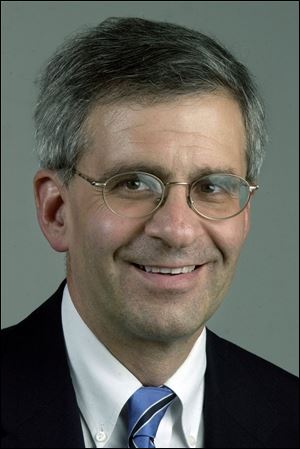
COMMENTARY
Presidents’ paradox of secrecy
1/26/2014
David M. Shribman
Something happened to Barack Obama on the way to the White House: He became the President.
That may seem like a tautology, or a wiseguy’s aside. But the remark is meant seriously. Presidents look at the world differently than senators do. They look at the world differently from any other soul on Earth.
All of which explains the President’s resolute belief in secrecy and the clandestine arts, despite his views as a senator, despite the disbelief and disapproval of many of his most ardent supporters. He believes in openness in the regulatory process and in much of the day-to-day business of government, including the online publication of White House visitor logs. He has released the George W. Bush administration memoranda on torture policies.
But a lot of the things that once seemed clear to him, especially in the national-security sphere, aren’t quite so obvious on the side of the Oval Office desk where the drawers are.
All of this underlines two important characteristics of the modern presidency.
The first is the struggle, dating to Woodrow Wilson, over the virtue or menace of secrecy. The second is the inclination — and here Mr. Obama and Richard Nixon are the reigning champions, though they are not alone — to feel this way: If you knew what I knew, you would do what I am doing.
President Wilson won the world’s hearts, and the revulsion of the world’s diplomats, when, in the shorthand of 1918, he called for “open covenants openly arrived at.” This notion was imbedded in the first of Mr. Wilson’s Fourteen Points, the utopian view of the post-World War I world. It was in part a capitalist counterpoint to the Russian Revolution, which had occurred only two months earlier and was accompanied by the publication of secret treaties.
Secrecy has been a matter of white-hot controversy throughout modern times. Into this polarizing vortex we mix the “president-knows-best” impulse, favored by some presidents (George W. Bush) but not employed by others (Franklin Roosevelt, who also faced tremendous national-security threats).
Mr. Obama clearly is troubled by this issue. He is torn by what he thinks is right, and by what he thinks about when he confronts the threats the country faces by groups that are hostile to American interests and the American way of life.
In a world where high-tech surveillance is so sophisticated, presidents understandably want their intelligence services to know as much as possible. The beginning of understanding the President’s view is to consider how he begins his day: with a security briefing that many days is chilling.
“I was shocked by what I heard in my briefings,” George W. Bush administration attorney general Michael Mukasey said in a telephone conversation the other day. “You find out on a comprehensive basis the threats out there. When you see what’s been stopped, you realize what would have happened if those threats weren’t stopped — and you realize who would be blamed.
“There are people in the world who, if they had ‘to-do’ lists on their refrigerators, the list would consist of one entry: ‘Get the United States.’”
That clearly has affected the President deeply. Mr. Obama’s problem is that his conviction that he has information others don’t — a fact that is incontestable — makes for a president who seems remote and unaccountable.
That may be an inevitable characteristic of the modern presidency. But so too is distrust and skepticism of the modern presidency.
David Shribman is executive editor of the Pittsburgh Post-Gazette.
Contact him at: dshribman@post-gazette.com.